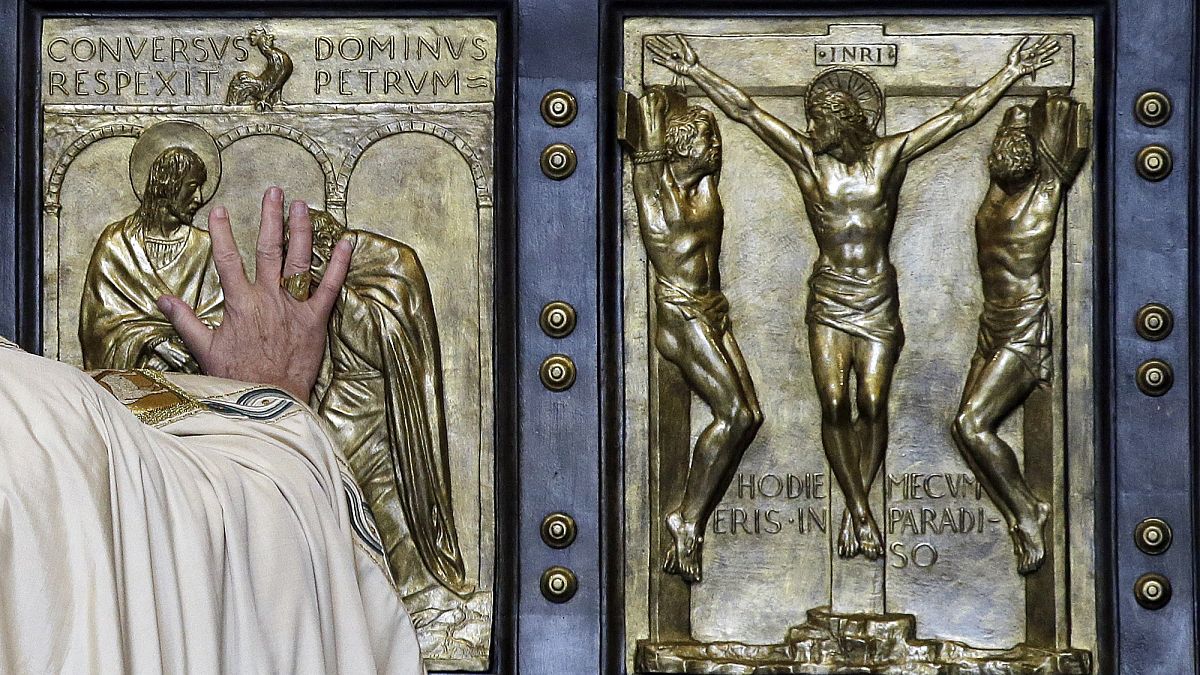Biden races to fund clean energy before leaving office

There are concerns that, if he were to win the election, Donald Trump would undo much of Joe Biden’s climate progress.
With just two weeks to go until the American presidential election, outgoing president Joe Biden is prioritising clean energy.
Biden’ administration is shelling out billions of dollars for clean energy as well as approving major offshore wind projects as officials race to secure major climate initiatives before he leaves office.
Since his election in 2020, Biden has made it clear that he wants to establish a legacy for climate action which includes locking in a trajectory for reducing the nation’s planet-warming greenhouse gas emissions. The US is the second most polluting country on earth, behind China.
Republican presidential nominee Donald Trump has frequently expressed climate scepticism and has pledged to rescind unspent funds in Biden’s landmark climate and health care bill and stop offshore wind development if he returns to the White House in January.
What is Joe Biden’s plan for clean energy?
There is unease in parts of the United States and further afield about Trump potentially becoming president for a second time.
Energy Secretary Jennifer Granholm told The Associated Press news agency that it would be “political malpractice” to undo clean energy incentives that are benefiting American incomes.
Currently most of the investments are going to areas with below-average weekly wages and college graduation rates.
“A lot of it is going to parts of America who have felt left behind. And this is giving them an opportunity,” Granholm said.
“Why would we take that away? And why would we prevent counties and cities and people and families from having future-facing jobs in industries like clean energy, which young people are very excited about being a part of?”
With this in mind, Granholm says she and her team are racing to commit funding and get contracts signed.
If Vice President Kamala Harris and Democratic nominee wins November’s election, she says she will pursue a climate agenda similar to Biden’s, focussing on reducing emissions, deploying renewables and creating more clean energy jobs.
Ahead of the election, announcements of major environmental grants and project approvals have sped up significantly.
The White House’s Deputy Chief of Staff Natalie Quillian has said that Biden is “sprinting to the finish” and delivering on promises to promote clean energy and slow climate change.
Joe Biden has been stepping up his clean energy initiatives as the election approaches
In the summer, the Environmental Protection Agency (EPA) made $20 billion (€18.4b) from a federal “green bank” for clean energy projects such as residential heat pumps, electric vehicle charging stations and community cooling centres.
In September, the Bureau of Ocean Energy Management approved the nation’s tenth large offshore wind farm, the Maryland Offshore Wind Project.
That resulted in the US reaching the halfway mark for Biden’s goal of 30 gigawatts of offshore wind energy by 2030. On 1 October, the agency also gave a key approval to an offshore wind farm project in New Jersey.
Also in October, the Energy Department made six announcements of a billion dollars or more, including more than $3 billion (€2.7b) for battery manufacturing projects and a $1.5 billion (€1.3b) loan to restart a nuclear plant in Michigan.
Just last week, Biden set a ten year deadline for cities to replace their lead pipes, with $2.6 billion (€2.4b) available from the EPA to help communities comply.
As well as the climate law – formally known as the Inflation Reduction Act (IRA) – Biden is seeking to spend billions in projects approved under the bipartisan infrastructure law in 2021 and the 2022 CHIPS and Science Act.
The $1 trillion (€92b) infrastructure law includes funds for roads, bridges, ports and more, while the CHIPS law aims to reinvigorate the computer chip sector in the United States through tens of billions of dollars in government support.
Trump – vs – Harris: What the winner could mean for US emissions
Biden’s climate legislation has put the United States on a path to cutting greenhouse gas emissions to try to meet targets made in the Paris Agreement.
These investments are expected to reduce US emissions by about 40 per cent by 2030.
However, this is not set in stone, especially if Trump wins the election. New analysis by global consultancy Baringa found that he would stall the transition away from fossil fuels – though by how much would depend on whether the House or Senate is controlled by Democrats who could technically temper climate rollbacks.
Trump, though, if unrestrained, could permanently alter the trajectory of the energy transition by repealing climate legislation.
There are concerns that he could substantially slow renewable rollout and leave the US wedded to coal and gas for far longer.
As vice president, Kamala Harris cast the tiebreaking vote on the Inflation Reduction Act – which was approved with only Democratic support.
When she was a senator in California, she was an early sponsor of the Green New Deal, which is made up of sweeping proposals meant to swiftly move the United States fully to green energy.
Her current position is not entirely clear, though.
At a presidential debate last month, Harris explained that the Biden administration has overseen “the largest increase in domestic oil production in history because of an approach that recognises that we cannot over-rely on foreign oil.”
Despite this, consultants at Baringa estimate that Trump’s policies could raise emissions by about 12 per cent by 2030 compared to those favoured by Harris or Biden. That’s equivalent to roughly 660 million tons of carbon dioxide.
Can the US maintain its energy goals even if Trump does win?
Currently, the US is the world’s second-largest emitter of planet-warming carbon dioxide.
Consultants at Baringa say Trump’s first-term policies caused emissions to rise 9 per cent, while Biden’s policies have lowered emissions by 11 per cent
Regardless of Trump’s position, some 18 House Republicans, including several in close races for reelection, told the House speaker in August they want to protect energy tax credits in Biden’s climate legislation that are creating jobs.
“Energy tax credits have spurred innovation, incentivized investment and created good jobs in many parts of the country – including many districts represented by members of our conference,” the lawmakers wrote.
To get the clean energy transition right, experts say the US needs to commit to it across election cycles, from one administration to the next, and through sessions of Congress.
“We’re trying to publicise the fact that (clean energy) is really beneficial for communities all over the country, whatever political geography,” Conrad Schneider, senior director at the Clean Air Task Force, an advocacy group, says.
“We hope that will mean these programmes can be sustained through any combination of electoral outcomes.”
World News || Latest News || U.S. News
Source link



